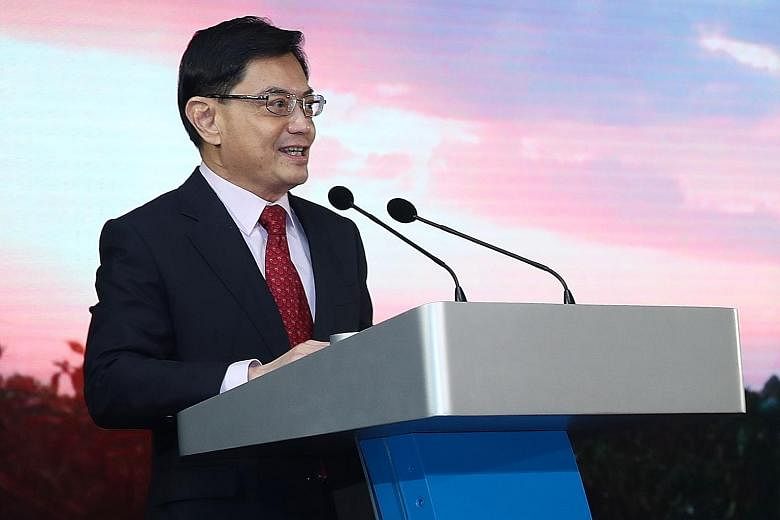More businesses should include sustainability in their mandate, and it is not just about protecting the planet - it also makes good business sense now, said Deputy Prime Minister Heng Swee Keat yesterday.
"There will be growing demand for sustainable products and services from consumers, including from a younger generation," he said at agri and food giant Olam International's 30th anniversary dinner at The Ritz-Carlton, Millenia Singapore.
Mr Heng noted that Singapore-headquartered Olam has been a leader in promoting sustainability, having launched a platform last year that allows customers to directly trace sources of supply at each stage of a product's journey.
This, he said, enhances Olam's ability to assess and positively influence the environmental footprint of the 4.8 million farmers in its supply chain, most of whom are smallholders growing crops like cocoa, coffee and cashew in emerging markets.
More businesses should take similar steps to ensure sustainability, so the industry can make a difference to Singapore and the world, he added.
Singapore is the second-largest trading hub internationally for agri-commodities, after Geneva, capturing over 20 per cent of global agri-commodity trade flows.
Last year, the trading community here generated more than $1.7 trillion in global trading turnover and created over 15,400 jobs.
Apart from setting aside $900 million for urban solutions and sustainability previously, the Republic also announced this week that it would invest US$2 billion (S$2.7 billion) in funds with a strong green focus.
Despite uncertainties in the global economy, the long-term prospects in agriculture remain positive, said Mr Heng. "If global population grows as expected, by 2050, calorific demand will rise by 70 per cent, and crop demand for human consumption and animal feed will increase by at least 100 per cent."
But he stressed that the ability to innovate will be vital in a time of rapid technological change.
The agriculture industry is being reshaped by advancements in areas such as precision agriculture and livestock technology, with blockchain and artificial intelligence also changing how trade is done.
Mr Heng, who is also Finance Minister, cited how Olam has adapted by creating a data collection platform for smallholder farms, and is now sourcing local partners with specialised expertise so it can provide micro-financing loans to farmers.
Such partnerships between large businesses and small and medium-sized enterprises are an avenue to boost Singapore's capabilities, Mr Heng said, adding that the Government will continue to support these tie-ups to help firms accelerate technological innovation.
"Efforts to capture external opportunities, leverage technology and champion sustainability will keep our agri-commodity sector competitive over the long term," he said, adding that workers must also learn and develop new skills and competencies to keep up with changes.
Olam International chief executive Sunny Verghese said in a speech that two big crises today are the climate emergency and the collapse of biodiversity, noting the importance of sustainability.
He added that change can happen only if it starts at the individual level, with other stakeholders stepping in.


